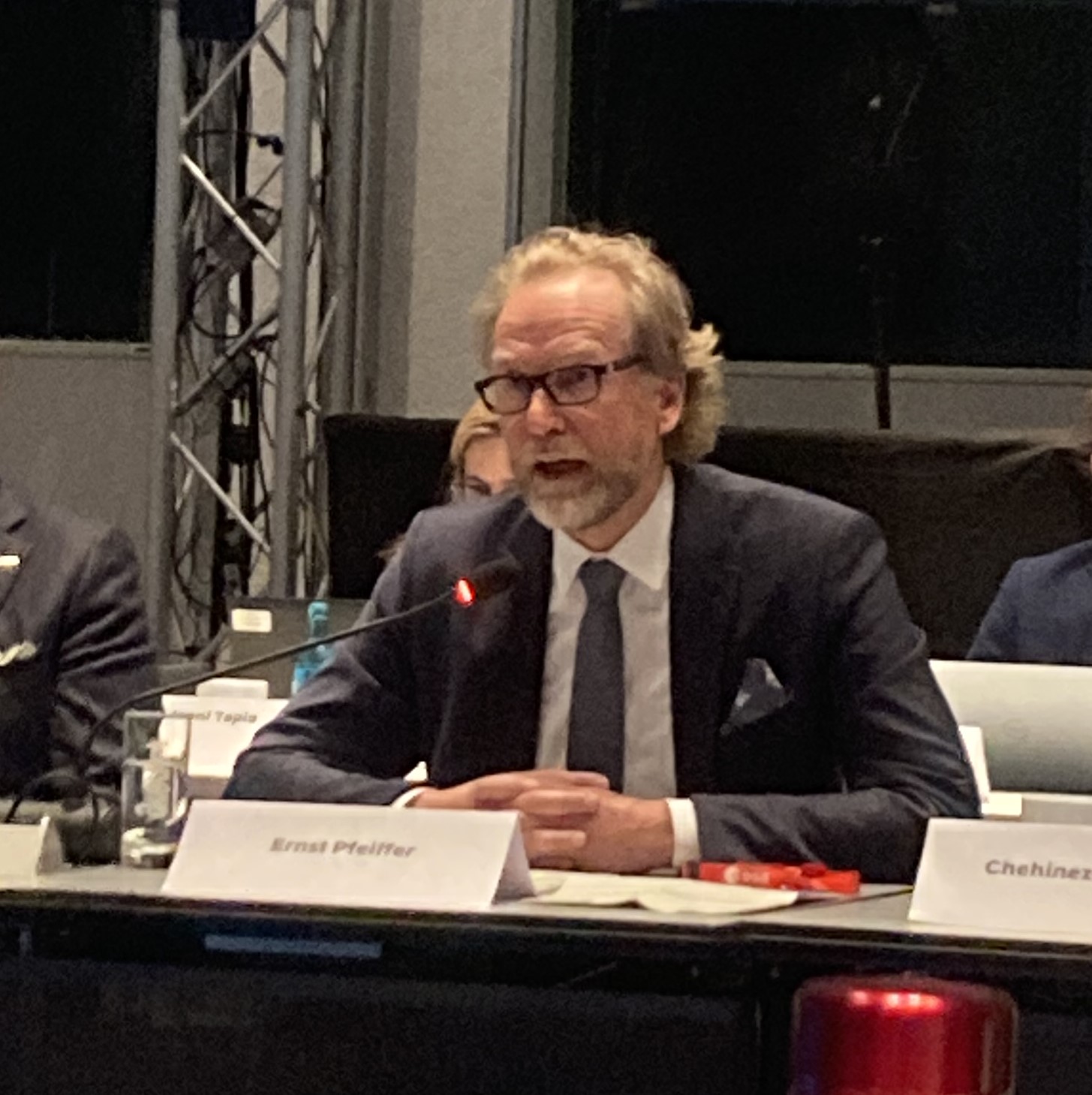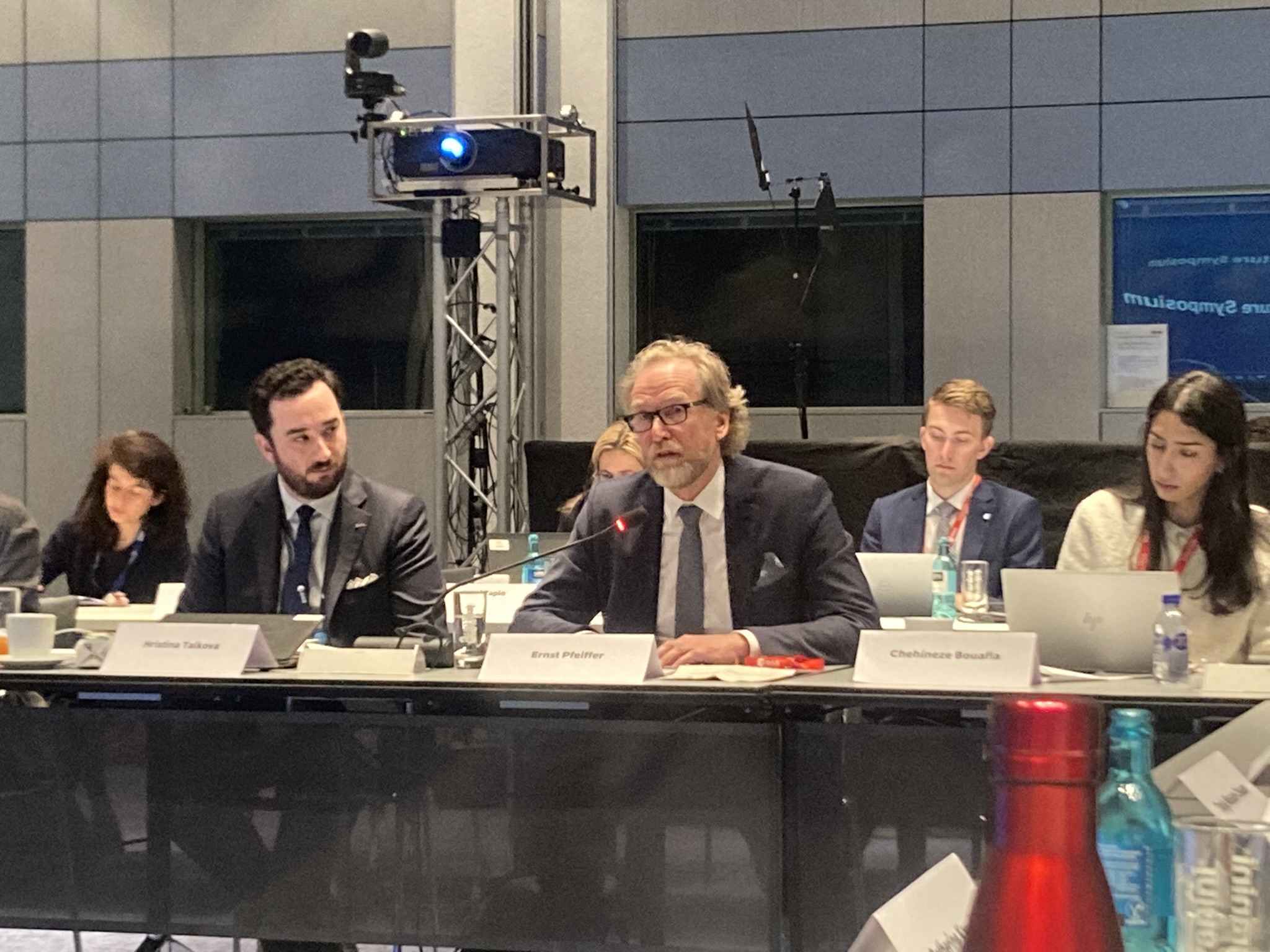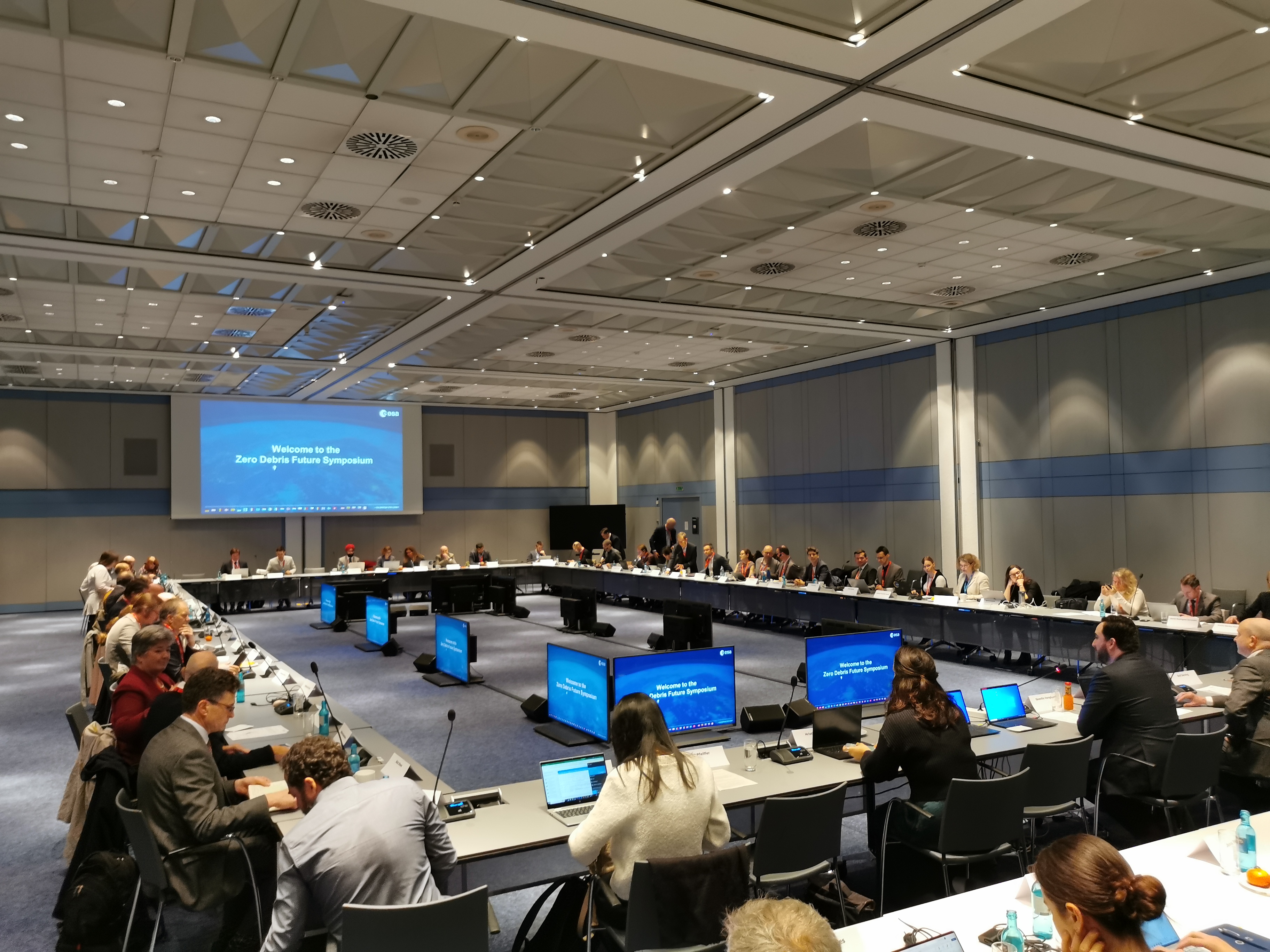April 2024
Opportunities from Implementing a Zero Debris Vision for Europe
Key Note by HPS-CEO Ernst K. Pfeiffer; ESA-ECSL Zero Debris Future Symposium, ESOC, Darmstadt, 04.04.2024.
ESA Zero Debris Future Symposium, Darmstadt
Opportunities from Implementing a Zero Debris Vision for Europe
Dear Director Densing,
dear Holger, dear Quentin,
dear colleagues from agencies, industry, research and development.
1. INTRODUCTION
It is always difficult to sell it to the general public as an “opportunity” when new regulations come into force. New rules always have something to do with restrictions, with control, with costs on all sides.
Well, let me talk about DIRECT and INDIRECT opportunities in relation to a “Zero Debris Vision”, even if I will sometimes use critical words.
2. DIRECT and INDIRECT Opportunities.
Yes, there are a number of companies for whom the
“Zero Debris Approach” could be a very promising DIRECT opportunity. The list of business areas is not extremely long, but extremely interesting:
First of all, there are a number of different deorbit-technologies.
In recent years, ESA has unfortunately only mentioned to the public the ACTIVE removal of EXISTING large junk. However, it will still take many years before 1,000 items per year can be removed commercially.
But there are already some deorbit-kits for satellites that MITIGATE debris before being created: chemical engines (MBDA, De-Orbit), electric propulsion (Morpheus), tether systems (Sener), or deployable drag sails (e.g. from my company HPS), already with TRL9. The winner-technologies will be those a) that will work, even if the satellite fails, b) that do not shorten the mission time, and c) that are emission-free.
Other business opportunities include debris measurement, debris software models, accurate position determination, collision prediction service, automatic collision avoidance systems, deorbit prediction software, or demise calculation software. All this is creating great opportunities for SMEs, the supplier industry and for service models. In the future there will also be a market for certifiers (a kind of “TÜV” for launch permission), for insurance companies, lawyers and much more.
Now to the INDIRECT opportunities, they are very simple: If we do nothing, there will soon be a collision-domino in LEO, a catastrophe. That’s it. No more space business, we all can close our companies, “Game Over”.
Anyone who hasn’t recognized this can no longer be helped. In this respect, the “Zero Debris Charter” is an extremely important sign to European space players. It will also motivate many countries to introduce appropriate measures.
Surprisingly, but understandably, the newer, small space states that want to do missions by themselves, are at the forefront. A recent article wrote: “Experts at the United Arab Emirates Space Agency are urging global decision-makers to put space debris mitigation at the top of their agenda.”
3. How do direct opportunities become a reality for Europe?
In the short term, opportunities become only reality, if European regulations become binding, when sanctions and fines are threatened. Why should a satellite builder spend extra money on deorbit-technology, if he doesn’t have to?
Catalysts in cars were also only installed, when regulations were set in place.
Of course, regulations must not put European providers at a disadvantage on the global market. And first regulations must be easy to understand and easy for the industry to implement.
Tell a politician: “The casualty risk from re-entering objects should remain lower than 1 in 10,000”…
When I was in February in Vienna at the United Nations Workshop on “Longterm Sustainability of Outer Space Activities”, I promoted on the podium in front of many states the simple “5-years deorbit rule”…; all UN-delegates easily understood it.
Or tell today a motivated satellite start-up: “The probability of space debris generation through collisions and break-ups should remain below 1 in 1.000 per object during the entire orbital lifetime”.
How is he supposed to prove that? And who checks that?
Other non-European countries have also recognized the opportunities. In mid-February there was a “Space Debris Workshop” in Saudi Arabia, where countries from all over the world exchanged ideas about the opportunities.
Opportunities in a global market require massive investment and speed, and some countries will provide it. If we are not attentive here in Europe, the world will overtake us.
Or do we want great European ideas/companies to be bought up by non-European companies?
For doing the very big things, small companies will have little chance.
20 years ago, there were hundreds of online delivery services, now there is basically only Amazon.
20 years ago, there were hundreds of online dating sites…now there’s basically only Tinder left in the world’s connection.
Seriously, when it comes to “sustainable space”, it is primarily the responsibility of states and agencies to introduce it into their missions and, at the same time, to accept respective increased mission costs.
It is a political task not to become dependent on technologies and services, when new regulations are introduced. If you also strive for leadership, appropriate financing and support of the big and small companies are necessary;
we in Europe cannot only rely on venture capital alone, especially when it comes to the issue of zero debris.
(And, on this occasion, leadership doesn’t work with a 30 hours-week or retirement at 60.)
The salvation doesn’t come only with the start-ups either. We in Europe need a healthy mix of established companies and start-ups, depending on the task. We’re still talking about space missions, with technology at the limits of feasibility. You need experienced specialists to achieve success. Global collaborations are helpful for large tasks.
(All the best for you, ASTROSCALE, a cooperation in 3 continents.)
That leads me to the next point, some
4. MEDIUM-TERM TECHNOLOGY PRIORITIES
Three examples from my point of view:
1) If I had real money
(and if I also wanted to see large parts of the world dependent on me),
I would build a GIGANTIC system of debris monitoring, with the largest AI-based database. I would sell this data, with an additional warning system as an option….
It exists already? Yes, I know, but only for larger junk, larger than 10 cm.
In the next 3 to 5 years the small particles, even smaller than 1 cm, will become the greatest unknown danger. They will multiply in a domino system, come in swarms and endanger entire constellations.
I would have a fleet of LEO observation satellites (with their own deorbit kit, of course) operating with different sensors, measuring directly in orbit impacts 24/7 and letting the AI do the rest.
There are already a few ESA-approaches to this in the Space Safety Program, but unfortunately only with underfunded studies; still.
2) Autonomous anti-collision-subsystems for autonomous flying.
A global market for small modules, buyable to everyone.
Will Europe be ahead here? Technologically and price-wise?
3) What is missing is a comprehensive software to predict, whether a satellite will burn completely or not. Because anyone who cannot prove this, especially for satellites >200 kg, must (according to the Zero Debris Charter) perform a controlled (and therefore expensive) re-entry over the seas.
Satellite builders prefer to buy certified software.
However, this software must be affordable, otherwise only large companies can afford it and that cannot be the goal of a Zero Debris initiative.
5. But what should be done NOW, IN THE SHORT TERM?
1) The 25 years deorbit rule dates back to the Middle Age, but is still firmly anchored in most minds. I strongly recommend that the rule:
“Deorbit within 5 years after end-of-business”
will be introduced immediately for all ESA missions into LEO and that this will be communicated publicly from the highest level, e.g. right after signature of the Zero Debris Charter.
2) Neither ARIANE 6 nor VEGA may carry any more satellites into LEO, that do not follow this rule.
Elon Musk is showing the world: from October onwards, there will no longer be permission for environmental sinners to fly on FALCON 9.
3) Each satellite should have retroreflectors on board to enable accurate tracking from the ground.
4) Financial vouchers should be awarded by ESA to companies and universities that install zero debris technologies on their satellites.
5) Director Densing, if European countries are serious about environmental awareness and “Clean Green Space”, the Space Safety program at CMIN 2025 must be significantly increased.
6. FINISH
So, I think that’s enough powder for a lively panel discussion.
For now, thank you very much for your attention.



